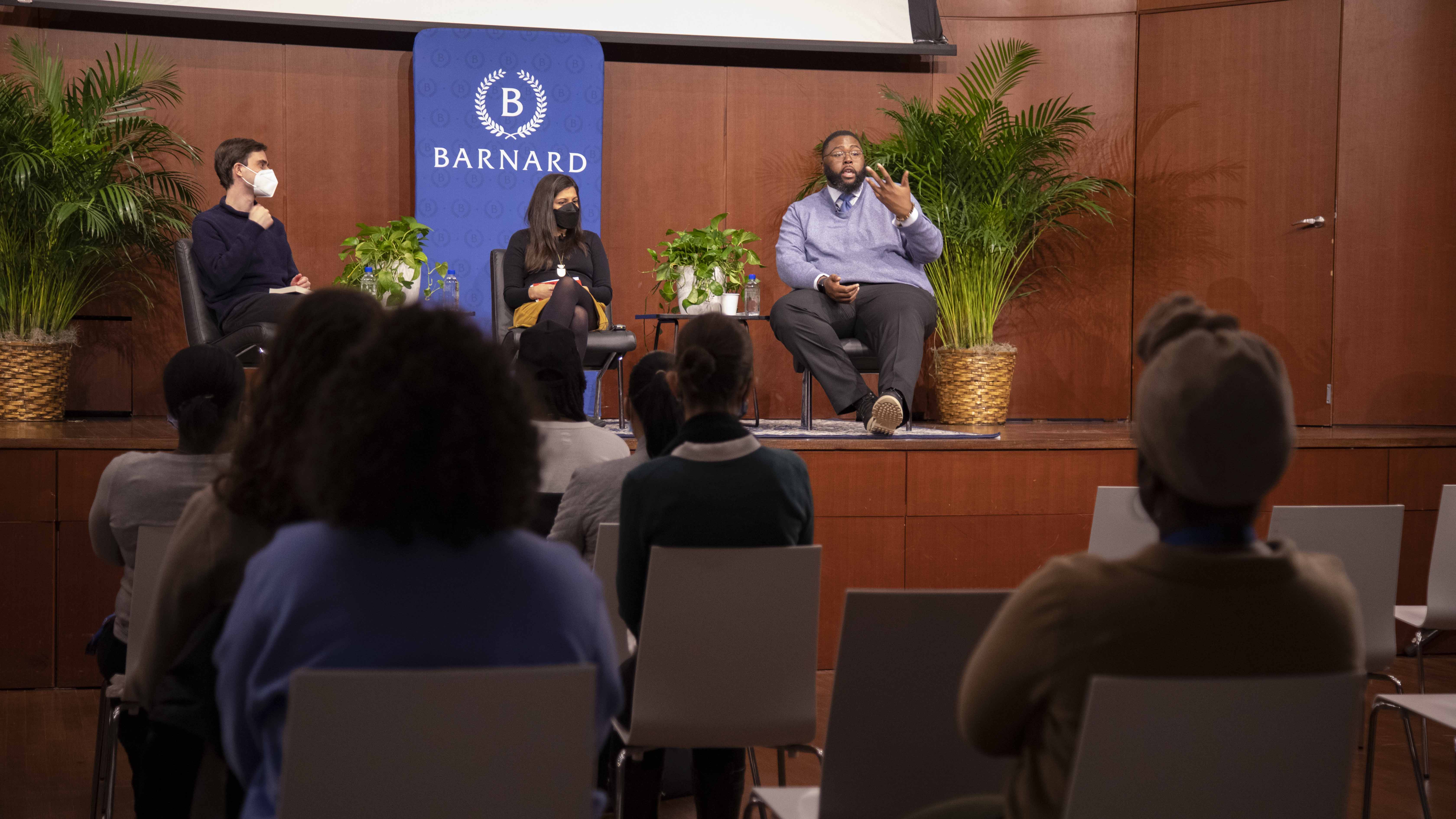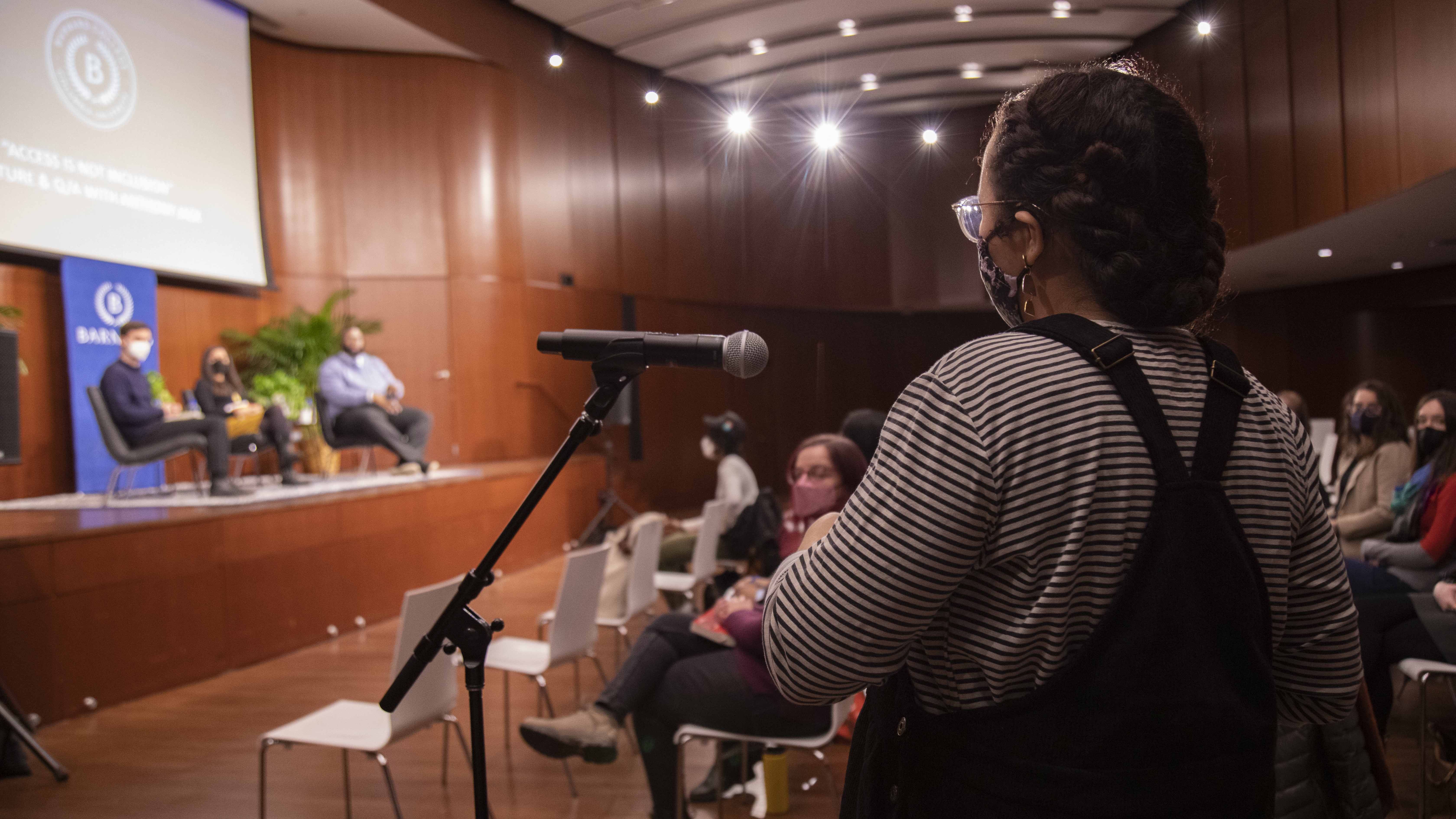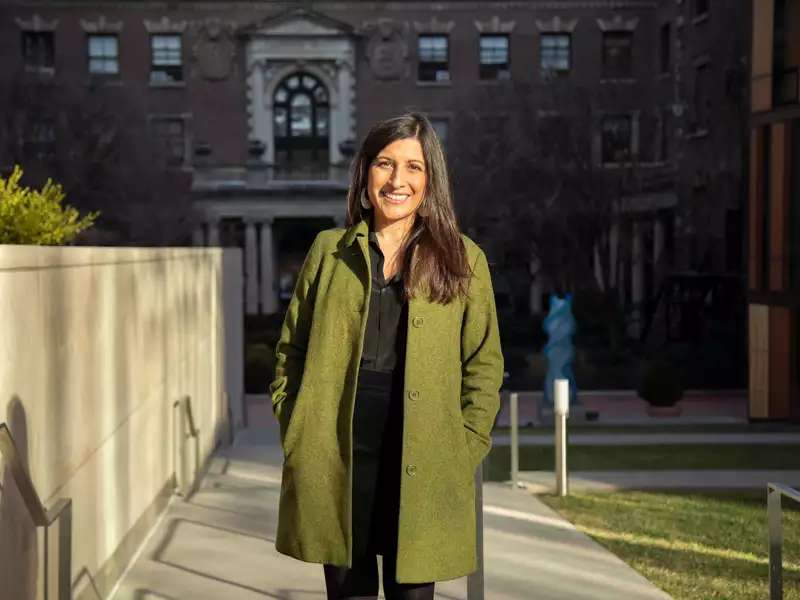On Friday, February 25, the College hosted “Access Is Not Inclusion,” a pair of events on race- and class-focused inclusion policies in higher education led by Anthony Jack, assistant professor of education at Harvard’s Graduate School of Education. Jack is the author of The Privileged Poor: How Elite Colleges Are Failing Disadvantaged Students, an examination of the systemic struggles low-income students face at colleges and universities and the ways that academic institutions can better support students from marginalized backgrounds.
Barnard students, staff, and faculty who read The Privileged Poor were invited to an intimate group conversation with Jack for the first event, which was co-hosted by the Center for Engaged Pedagogy (CEP) associate director Alex Pittman and Vice President for Inclusion and Engaged Learning, Chief Diversity Officer Jennifer Rosales. The second event was a public lecture in which Jack shared anecdotes from his research and engaged in a Q&A with audience members. “I hope that The Privileged Poor not only outlines the challenges that students face but also provides a framework for addressing these challenges,” Jack said during the public event.
The events were co-hosted by the CEP, the Dean’s Office, Access Barnard, and the Francine A. LeFrak Foundation Center for Well-Being. In both events, Jack outlined ways that universities can change to better support diverse low-income students. “For us to be prepared for students, for us to welcome students, we have to understand where they come from and what they have been through to understand how they chart the paths that they do once they’ve walked through the gates,” Jack said.
Jack addressed specific issues faced by first-generation and low-income undergraduate students, including housing and food insecurity, and how institutions can create support systems for these students. Drawing from his book, Jack also discussed ways to understand the diverse experiences of first-generation students and the differences between policies of access and inclusion at universities. “To understand the first-generation college experience means that we have to expand our understanding of the totality of those experiences,” he said. “Our understandings of inequality and poverty, class and culture on a college campus remain incomplete if we continue to lump all low-income students together as one monolithic group.”
Barnard supports first-generation, low-income, and international students through the Access Barnard office, which leverages the resources of the College and New York City as a whole to help students navigate the American higher education system. Additionally, the First Generation and Low Income (FLI) @ Barnard program, run through the Student Success Program, provides support, training, and programming for the College’s highly diverse student body. From an FLI Student Advisory Board to an exchange program with Spelman College, as well as career support and guidance during and after graduation from Beyond Barnard, the College is committed to ensuring that all students who identify with the FLI community receive an enriched and successful academic experience.
“We must move from access to inclusion,” Jack said. “We must move from worrying about who we admit to worrying about how we treat those who we admit.”
– SOLBY LIM ’22
For more resources, visit the Francine A. LeFrak Foundation Center for Well-Being, Barnard’s new centralized hub for all wellness-related initiatives across campus. The Francine LeFrak Center supports the entire College community with a 360-degree perspective of personal well-being: physical, mental, and financial.


